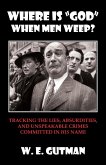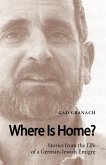In this lively and ambitious book, James Sheehan, former president of the American Historical Association, charts what is perhaps the most radical shift in Europe's history: its transformation from war-torn battlefield to peaceful, prosperous society. For centuries, war was Europe's defining narrative, affecting every aspect of political, social, and cultural life. But after World War II, Europe began to reimagine statehood, rejecting ballooning defense budgets in favor of material well-being, social stability, and economic growth. Where Have All the Soldiers Gone? reveals how and why this happened, and what it means for America and the rest of the world. With remarkable insight and clarity, Sheehan covers the major intellectual and political events in Europe over the past one hundred years, from the pacifist and militarist movements of the early twentieth century and two catastrophic world wars to the fall of the Berlin Wall and the heated debate over Iraq. This authoritative history provides much-needed context for understanding the fractured era in which we live.
Hinweis: Dieser Artikel kann nur an eine deutsche Lieferadresse ausgeliefert werden.
Hinweis: Dieser Artikel kann nur an eine deutsche Lieferadresse ausgeliefert werden.








